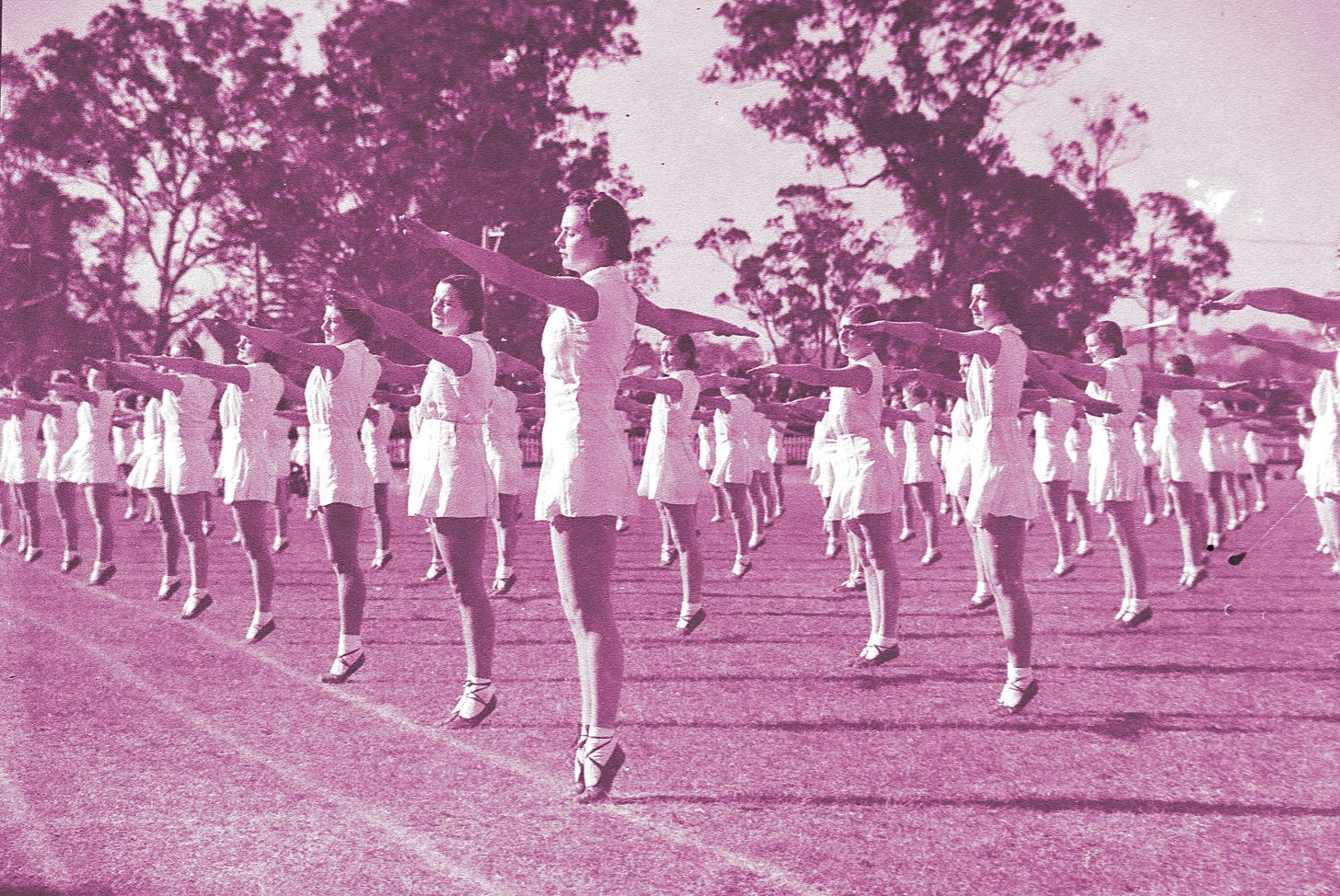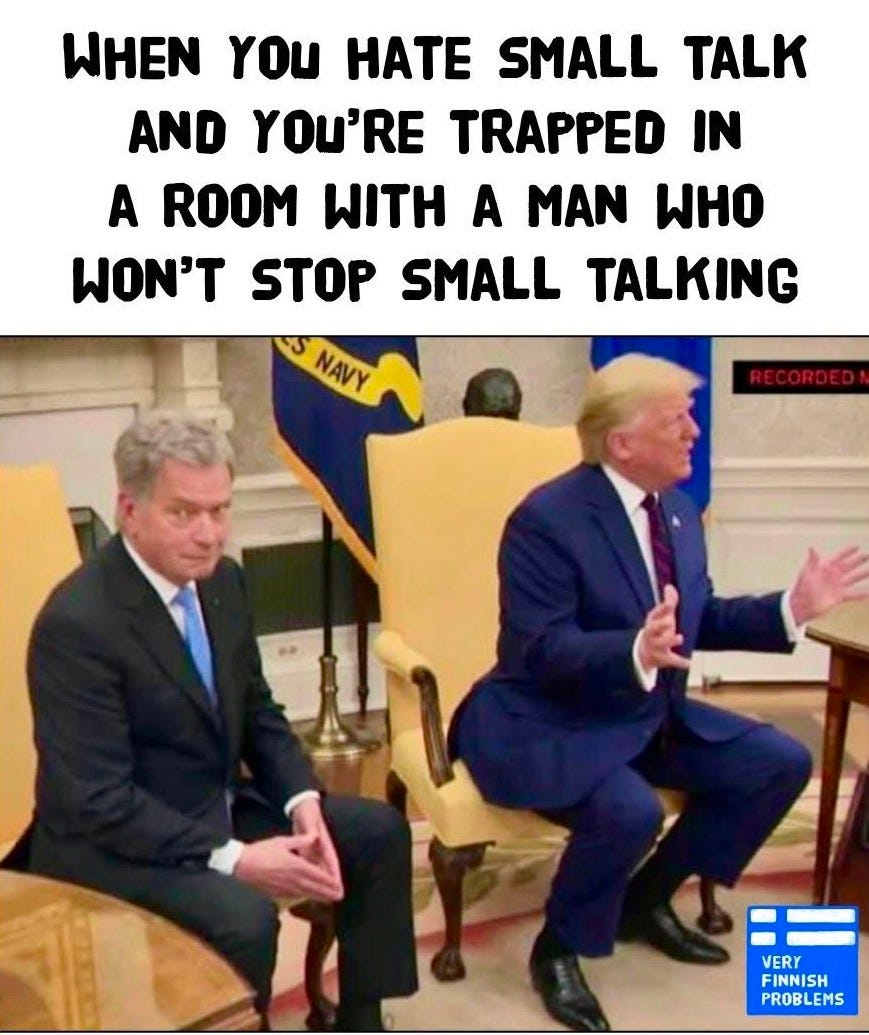Tip-toeing: When You Can't (or Won't) Say What You Need to Say
Is it a cultural trait?
Hello friends,
On Tuesday 15-Wednesday 16 October (depending on your time zone) I have a new Webinar series with
Each month for six episodes, I’ll explore How We Memorialise in a series of conversations with people who have unique insights into memorialising. First up is Professor Gordon Coonfield who has documented street-side memorials in a suburb of Philadelphia. I can’t wait to share his Kensington Remembers project with you. It’s free. Come exploring with us.I recently travelled to Finland where I discovered a refreshingly different conversation style. Finnish people don’t try to be polite, they aim to be direct. They don’t interrupt. They prefer silence to banter and they don’t engage in small talk. Bliss.
In Australia and some western cultures I’ve noticed that in our regular daily conversations we prefer politeness, niceness or inoffensiveness in our interactions. This results in a phenomenon known as tip-toeing. Tip-toeing is a convoluted way of getting a message across. Often, the message gets lost.
I’ve lived in Australia for two decades off and on and worked in a number of cultures both long and short-term including twenty-five years in Hong Kong and Mainland China, two years in the Middle-East and three years in Europe (mainly London). Whether it was Belfast, Bethlehem or Beidahe, I always enjoyed observing how people communicate as much as I’ve enjoyed conversing with them.
Though it’s not strictly a conversation, one of my great pleasures is tuning in to Philip Galanes’s weekly Social Q’s column in the New York Times where he responds to real life problems and dilemmas. The most entertaining parts are the reader comments. What this column shows us is that there’s no single way to resolve our myriad communication problems (and readers are in furious agreement, and disagreement on this point). I find it curious that people would ask a complete stranger for advice on how to approach difficult conversations with families and communities. Or maybe it’s better to ask a stranger?
Here’s one of those tricky questions:
Philip Galanes - who daylights as a lawyer - gives wise counsel to this question about how we navigate difficult conversations with our ageing parents. What we don’t know is whether the author (the daughter) is asking her question in good faith. And, what age or state are her parents in? What say the siblings?
“Talk to them (your parents)!” Galanes advises the author. Yes, start a conversation.
Mark Manson who wrote the bestselling The Subtle Art of Not Giving a F*ck describes our society’s preferred style as fake-nice communication. He frequently returns to the theme of what remains unspoken in families:
“The problem with my home life back then was not all of the horrible things that were said or done; rather it was all of the horrible things that needed to be said and done but weren’t… The house could have been burning down around us and it would have been met with, “Oh no, everything’s fine. A tad warm in here, perhaps - but really, everything’s fine.”
There it is friends. Just have the conversation. It feels so much better out of your head than stuck inside. Get it out… if necessary onto a piece of paper first. If you’re like me, you’ve spent a lifetime training to be nice. Either we need to be more Finnish or scrap nice and think of being kind instead.
Thank-you friends. Have a refreshingly direct weekend.








I love your reply Ann. I think we could have lots of difficult (and interesting) conversations together! I often think people who are conflict averse have an imprint of something that went wrong. For me, if I can possibly not carry a burden, I would rather not! Hope you are well.
Hi Jane, thanks for your thoughtful article about “tip toeing “ when talking or writing with family and friends. I had my own approach when communicating with some people- if I’m uncomfortable with some people I learned to keep polite distance from them. This essentially meant cut back the time of contact. See them sometimes , and keep meeting relatively short. With less chance for conversation to Segway into topic that potentially might cause conflict to erupt. There was a need for this with some family members I decided over the years . When my father passed, I chose not to contribute to his obituary. I thought polite silence was appropriate at that time. Other family members were happy to speak their thoughts. And that was enough I rightly decided. Yes, polite distance in life and in death .
Regards Jane
Laurie ABELA